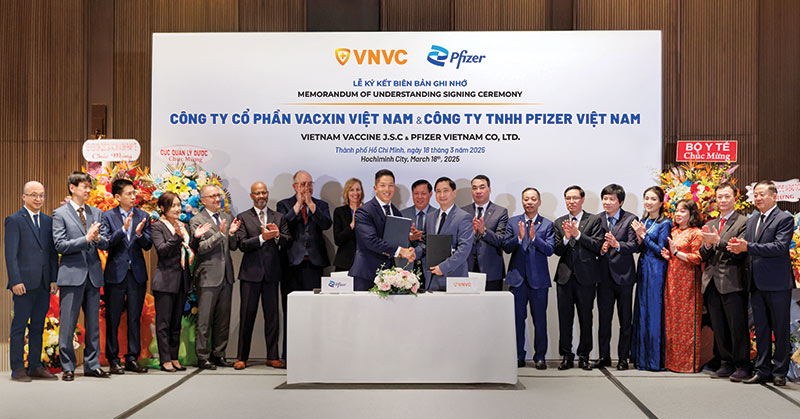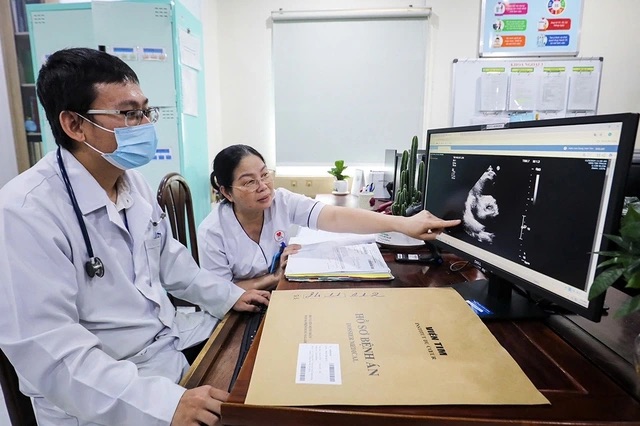While industries like manufacturing, real estate, and energy continue to lead foreign direct investment (FDI) inflows into Vietnam, the healthcare sector is beginning to show clear signs of growth. As of mid-2024, the country recorded around 160 FDI projects in the medical and pharmaceutical sector, with total registered capital reaching nearly USD 1.8 billion, which is an increase compared to pre-pandemic levels. In the first half of 2024 alone, healthcare technology and medical equipment projects attracted over USD 200 million in new FDI's, primarily from South Korea, Singapore, Japan, and China.
A report by FiinResearch (under FiinGroup) forecasts that Vietnam’s private healthcare market is expected to grow at a compound annual growth rate (CAGR) of around 7.5% between 2025 and 2030.
These figures suggest that healthcare in Vietnam is entering a new phase of heightened investor attention. But what exactly is driving this interest in Vietnam’s healthcare ecosystem?
Large Population, Rising Healthcare Demand: A Foundation for Long-Term Stability
This is the first essential factor that positions Vietnam as an attractive destination for healthcare FDI.
With a population of over 100 million, nearly 70% of whom are of working age, and with signs of population aging becoming more apparent, Vietnam’s healthcare needs continue to grow in both scale and segmentation. According to the General Office for Population and Family Planning, Vietnam is expected to enter the aging population phase by 2036, triggering demand for chronic disease treatment, rehabilitation, and homecare services (Source).
More notably, young and middle-class urban consumers, a growing demographic, are changing their health behaviors, showing a greater willingness to spend on high-quality medical services, preventive care, and long-term wellness. Post-pandemic, more Vietnamese people are prioritizing their personal health, with nearly half of consumers planning to increase their healthcare spending in the next 12 months (Source).
This signals long-term opportunities for investors, as Vietnam is not only a large market but one that is shifting its mindset toward proactive healthcare and higher personal spending. This shift is especially evident among younger urban populations and the expanding middle class.

Pharmaceuticals: Moving Beyond Basics to Deeper Global Integration
The second factor lies in Vietnam’s pharmaceutical industry, which currently hosts over 250 drug manufacturers, most of whom produce generic (second-generation) medicines. However, in recent years, a clear trend has emerged: deeper collaboration with international partners via technology transfer, construction of high-standard facilities, and mergers to expand domestic production capacity.
One of the most notable deals was Chinese firm Livzon Pharmaceutical Group’s acquisition of nearly 65% of Imexpharm, being Vietnam’s leading antibiotic manufacturer and distributor, valued at over VND 5.7 trillion. Previously, Japanese firm Taisho acquired 51% of DHG Pharma (Hau Giang Pharmaceutical), becoming the controlling shareholder of the country’s leading pharmaceutical company.
In parallel, some strategic investors are directly investing in local production infrastructure. VNVC, Vietnam’s leading private vaccination network, is developing a vaccine and biologics factory worth approximately VND 2,000 billion (around USD 83 million), designed to meet WHO, FDA, and GMP standards, in partnership with Germany’s Rieckermann Group. VNVC has also signed a Memorandum of Understanding with Pfizer to collaborate on vaccine manufacturing and quality assurance, paving the way for high-tech biologics development in Vietnam.
These developments suggest that foreign corporations no longer view Vietnam solely as a consumption market, but are actively integrating into the local pharmaceutical value chain, targeting local production to leverage Vietnam’s competitive costs for both domestic and regional markets.
For investors, this represents a strong foundation for the industry, which is gradually evolving toward quality standardization, advanced technology adoption, increased capacity, and supply chain improvement. Vietnam is becoming ready for deeper collaboration, particularly with long-term strategic partners.

Pro-Investment Healthcare Policies, Powered by Technology
Vietnam is also shifting its healthcare policy approach from a focus purely on treatment, toward improving service quality, management efficiency, and embracing technological applications. These reforms are backed by long-term policy orientations, notably Resolution 72‑NQ/TW, issued in September 2025.
One highlight of the resolution is land-use policy reform, offering tax and land-use incentives and prioritizing the allocation of clean land plots for healthcare infrastructure development. Additionally, the government is encouraging regulated private healthcare growth and promoting public-private partnerships (PPPs) in key areas like pharmaceuticals, vaccines, medical devices, and high-tech services.
From a technology standpoint, the resolution calls for accelerated digital transformation, including the development of a national health database, electronic medical records (EMRs), and integrated systems connecting public and private healthcare facilities.
In practice, many central and private hospitals have already adopted digital management solutions such as hospital information systems (HIS), EMRs, AI-powered diagnostics, and robotic surgery. These efforts align with the Ministry of Health’s roadmap to build smart hospital models across the country.
These two forces - open-door policy and digital transformation demand - are creating clear investment opportunities for tech companies, healthtech firms, and international investors to deepen their roles in healthcare infrastructure, medical equipment, health data, and operations management.

A Strategically Emerging Healthcare Market
Vietnam is not a “hot-growth” market in healthcare, but it’s no longer an undeveloped one either. The country has reached a phase where key building blocks are in place, from pharmaceutical capabilities and private sector growth to investment policy and tech adoption.
These factors reflect not only strong market potential, but also Vietnam’s growing capacity in skills, experience, and technological readiness. Domestic policy is increasingly supportive and welcoming of both private and international involvement. At the same time, rising attention from global investors indicates that Vietnam is no longer on the sidelines of the regional healthcare investment map.
For investors, success in this market requires a long-term vision and flexible strategy: understanding local needs, selecting the right partners, aligning with policy developments, and being prepared to invest during the transition phase. If these conditions align, Vietnam could become a valuable link in Asia’s healthcare supply chain, not only as a consumer, but also as a producer, service provider, and contributor to healthcare innovation.
Hosted by Vietnam Innovators Digest, the Healthcare Summit 2025 themed by “Making Vietnam an Innovation Hub through Healthcare” will bring together healthcare leaders, investors, policymakers and innovators. This year's summit will be a dynamic convergence focused on healthcare innovation, investment and accessibility through digital health solutions. We will explore how investment and innovation can accelerate the healthcare transformation in Vietnam and beyond.Date and Time: 9:00 AM - 4:00 PM, 24 October, 2025Location: Ho Chi Minh city (Venue to be updated soon)Event details: find out more HERE
